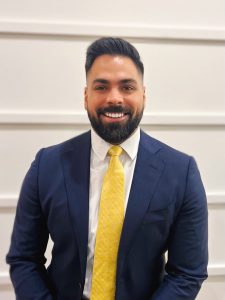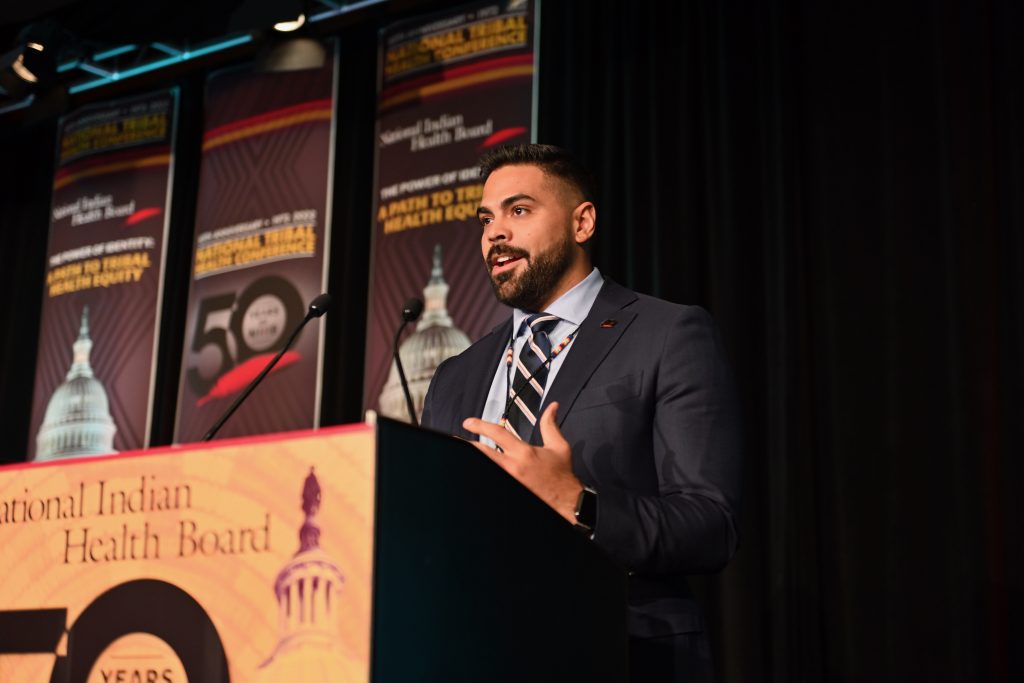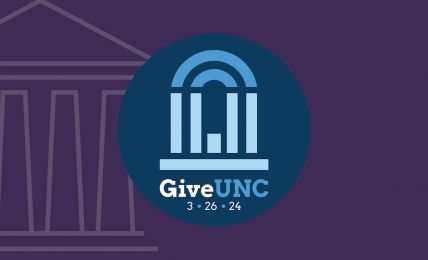
By Jess Clarke
A.C. Locklear ’16 has advocated for Indigenous peoples for most of his life. As a citizen of the Lumbee Tribe of North Carolina, he was the president of the Native American Law Students’ Association at Carolina Law and was involved with two American Indian student groups as an undergraduate at UNC-Chapel Hill.
After law school, Locklear worked in Chapel Hill’s University Office for Diversity and Inclusion and later at the Aspen Institute’s Center for Native American Youth in Washington, D.C. Now, he has upped his game as the new — and first — federal relations director for the National Indian Health Board (NIHB).
“I have always wanted to do something to improve the lives of people in my community,” Locklear says. “Our people suffer from some of the worst health outcomes of any population in this country, and I’ve seen firsthand what the outcomes of poverty and poor health look like.”
The NIHB, a nonprofit based in Washington, advocates for the rights of all federally recognized American Indian and Alaska Native (AI/AN) tribes through the fulfillment of the responsibility to deliver health and public health services. NIHB does this by presenting the Tribal perspective while monitoring, analyzing, reporting on, and responding to federal legislation, policy, law and regulations, and provides technical assistance to tribal governments.
In his new role, Locklear works with tribal governments and federal agencies to capitalize on an Administration that wants to collaborate with tribal nations to improve the health and well-being of AI/AN people. “We are expanding our support for tribal leaders as we have the ability to influence more than we ever have…with this administration being so friendly toward Indian Country,” he says.
That’s why, at Locklear’s invitation, Vice President Kamala Harris spoke at the NIHB’s annual National Tribal Public Health Summit in 2022.
The federal government has established tribal advisory committees for some of its departments and agencies, including the U.S. Department of Health and Human Services, the National Institutes of Health, and the Centers for Disease Control and Prevention. Locklear’s office builds tribal leaders’ capacity to advocate for their priorities before Congress and the Administration, and provides technical assistance by developing policy briefs, talking points, and other advocacy materials.
One of Locklear’s main goals is to expand NIHB support of the tribal advisory committees. “We have an administration in Washington dedicated to strengthening the government’s relationship with tribes,” he says. “I want to advance our health equity work in terms of policies throughout the federal government. Health equity is a cornerstone of this Administration, and Tribes have often been left out of the conversation…I want to make sure we are engaged with the Biden-Harris Administration on all these conversations.”
Toward that aim, Locklear’s department works closely with tribes, tribal organizations, and other champions for Indian Country to advance strategic legislative and policy goals. “We want to be sure we’re advancing our priorities together…to support a more unified approach to our advocacy, so we’re not just working in silos,” he says.
After more than a decade of tireless advocacy, the NIHB’s unified approach helped secure advance appropriations for the Indian Health Service (IHS), beginning in Fiscal Year 2024. Prior to this change, IHS was the only federal healthcare provider without basic certainty of funding from one year to the next. Locklear’s department supported the NIHB as they led the national coalition responsible for securing advance appropriations.
With advance appropriations, American Indians and Alaska Natives will no longer be uniquely at risk of death or serious harm caused by government shutdowns and delays in the annual appropriations process. “One of the things I like most in my position is being able to empower tribal leaders to make a difference in their communities,” Locklear says. “I like seeing that kind of impact on a national level…and shifting and responding as needs arise.”
Carolina Law prepared Locklear himself to make a national impact in his career, as he now works with the 574 federally recognized American Indian and Alaska Native tribal governments.
Locklear liked the law school’s emphasis on public service and encouragement of pro bono opportunities. His summer Udall Foundation congressional internship in the Office of the Assistant Secretary of Indian Affairs in the U.S. Department of the Interior and courses he took on federal Indian law give him a foundation for his NIHB position.

“Overall, UNC really gave me confidence to pursue something as niche as federal Indian law. They nurtured that and celebrated me and my identity,” he says. “The law school gave me the skills and confidence to take everything I wanted to do to the next level.”
Now that he’s at the next level, Locklear, who grew up in Pembroke, North Carolina, where the Lumbee tribe is based, hasn’t forgotten what motivated him to get there.
“You can either fade into the background, or you can represent your community for those who can’t represent themselves,” he says. “I’ve been able to elevate tribal communities, change the narrative to place our people in the present, not in the past, and to educate about not just who we are but how we are in our lives, the struggles we face, and our achievements and culture.”



